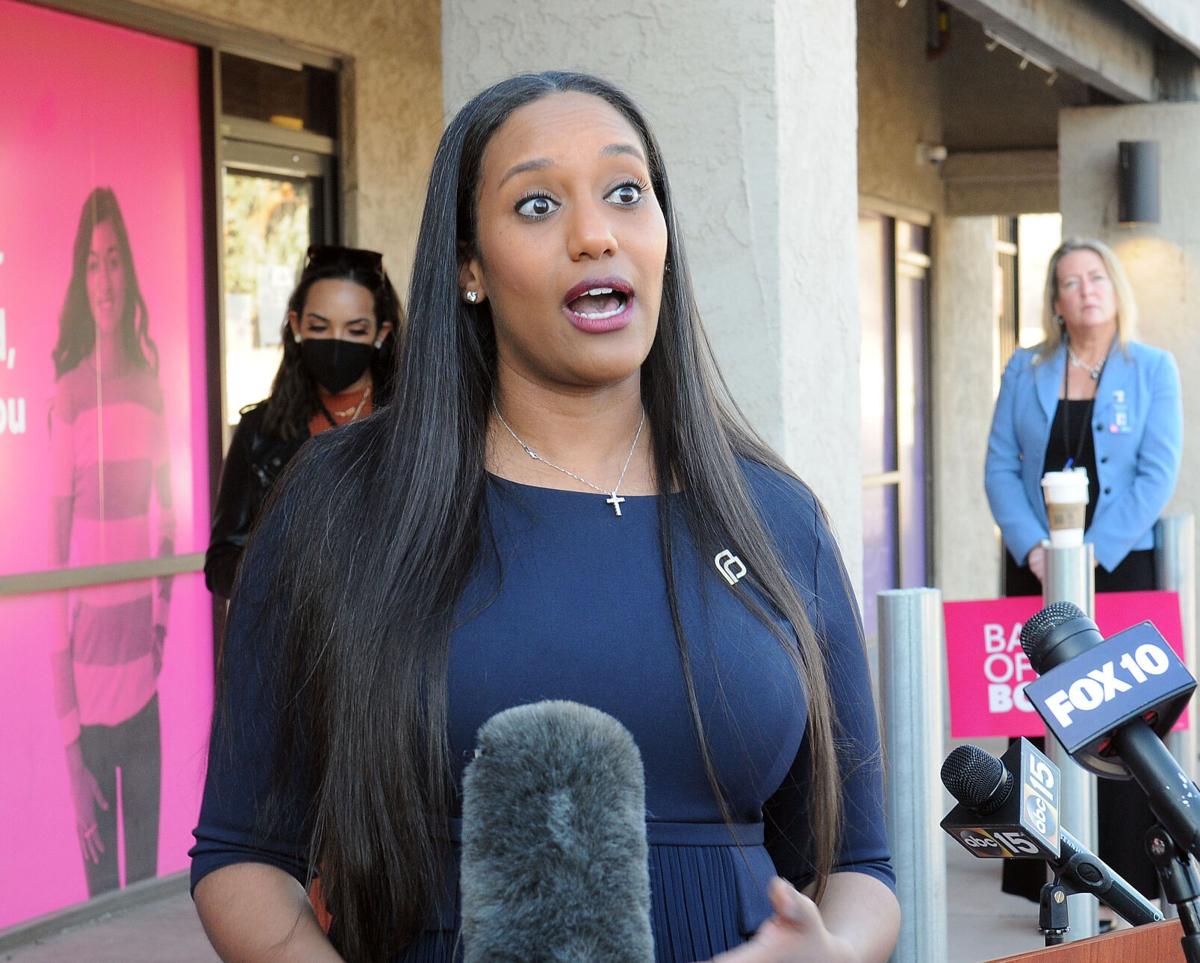PHOENIX — Planned Parenthood of Arizona is reopening all of its sites where it offers abortion in the state.
But for how long will depend on the courts.
Brittany Fonteno, organization president, said Thursday that patients seeking to terminate a pregnancy now will be able to go to sites in Tempe, Glendale and Flagstaff. The Tucson office was reopened for abortion services two months ago.
What changed, Fonteno said, is the legal landscape.
Abortions in Arizona came to a halt after the U.S. Supreme Court overturned Roe v. Wade in 1973, leaving it up to each state to decide its own restrictions. That resulted in state Attorney General Mark Brnovich arguing that a law that dates back to 1864 outlawing virtually all abortions — never repealed after the 1973 ruling, is once again in effect.
He got a Pima County superior court judge to agree with him.
But the state Court of Appeals stayed that order while it considers arguments that a law approved earlier this year banning abortions only after 15 weeks of pregnancy still permits doctors to perform the procedure.
And just this week Brnovich agreed not to prosecute doctors for violating the territorial-era law until at least 45 days after a final ruling in that case, giving a chance for other foes of the old law a chance to make their own arguments. That pushes any chance for enforcement into at least early next year.
“It definitely provided additional reassurance to providers,” Fonteno said. “We’ve been living in a real environment of fear of criminalization.”
She stressed, though, this isn’t the last word.
“Abortion is temporarily legal in Arizona,” Fonteno said.
“It means that we are continuing to fight every day,” she continued. “We have seen the trauma and the impact that it’s had on people’s lives when abortion care and their rights to health care is ripped from their hands from one day to the next.”
Fonteno said that Planned Parenthood did feel comfortable enough with the legal climate back in August to again perform abortions at its Tucson facility. Some of it, she said, was logistical.
“Resuming abortion services, unfortunately, isn’t as easy as turning on a light switch,” Fonteno said.
“There’s a lot operationally that goes into it,” she said. “Tucson is just the health center that we were able to get up and running, that we were able to fully staff and be able to open our doors to the community for abortion care again.”
But Fonteno acknowledged that the decision was made to reopen only Tucson for abortions because the staff at other locations, noting the ongoing legal battles, did not feel sufficiently comfortable, especially with Brnovich continuing to insist that the law outlawing abortion except to save the life of the mother is valid.
“Of course, that had a very chilling effect on providers here and across the state,” she said while standing in front of the organization’s Tempe facility.
“We did have providers in Tucson that felt comfortable,” Fonteno said. “And at that point we wanted to make sure that we were supporting all of our staff and their ability to make their own decisions about whether or not they participated in providing abortion care.”
Fonteno stressed that the current legal climate is just temporary. She said the last word on which abortion law is in effect — the territorial-era ban or the 15-week limit approved earlier this year by state lawmakers — ultimately will have to be decided by the state Supreme Court.
There is another option, though not immediate.
Fonteno said the ultimate answer may be getting Arizona voters to enact a constitutional amendment guaranteeing women in the state the right to terminate a pregnancy.
There actually was such a petition drive started earlier this year. But it failed to get enough signatures, at least in part because Planned Parenthood did not support the move.
“We looked at what is possible in this year,” Fonteno said.
“We know that ballot initiatives take a lot of time, a lot of resources,” she said. And Fonteno said Planned Parenthood believes “it wasn’t really possible” in six weeks to gather the nearly 400,000 signatures to put the issue to voters this year.
As it turned out, Arizonans for Reproductive Freedom said that, on their own, they were able to gather only about 176,000 signatures by the July 5th deadline. That left organization treasurer Shasta McManus frustrated.
“Women in Arizona, they don’t have two years to wait,” she said at the time.
Fonteno said Planned Parenthood might be willing to support putting something on a future ballot.
“We are exploring with partner organizations and allies the possibility of doing a ballot initiative in 2024,” she said.
More immediately, Fonteno said Planned Parenthood Action Fund, the political arm of the organization, is focused on convincing voters to defeat some measures the Republican-controlled legislature put on the November ballot which she said will make it harder for voters to enact their own laws.
One of those is Proposition 128. It would allow lawmakers to revamp and even repeal voter-approved laws if a court determines any part of an initiative was found illegal.
Also on the ballot is Proposition 129 which would limit voter-proposed measures to a single subject. Foes argue that would open the door to lawsuits if everything in an initiative is not included in the subject line.
Legislative District 18 candidates Stan Caine, Priya Sundareshan, Nancy Gutierrez and Chris Mathis discuss abortion access. Video by Jesse Tellez / Arizona Daily Star.





